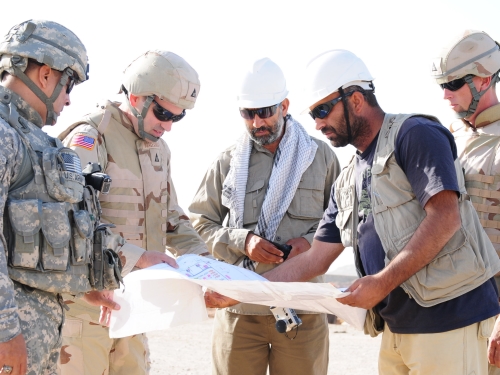
This article was originally published by the Danish Institute for International Studies (DIIS) on 17 August, 2015.
The omission of violent conflict and fragility is one of the biggest shortcomings of the otherwise heralded Millennium Development Goals. The gap in MDG performance between fragile and conflict-affected states and other developing countries remains wide, and the OECD estimates that by 2020 extreme poverty will be concentrated mainly in fragile states.
To address this, a broad coalition of Western governments, development agencies and NGOs, as well as the so-called g7+ group of self-proclaimed fragile states have worked to include security and governance in the post-MDG framework. SDG 16 marks the crowning of their efforts as it encourages all Member States to:
“Promote peaceful and inclusive societies for sustainable development, provide access to justice for all and build effective, accountable and inclusive institutions at all levels.”
With the focus on inclusive politics and effective institutions, SDG 16 reads much like the condensed policy wisdom from the OECD/DAC’s work on conflict and fragility. As all 17 Development Goals, however, SDG 16 is universal. Violence and insecurity cause human suffering and hold back development in all countries; rich as well as poor. Unsurprisingly, some Member States, including ‘new’ powers such as India, Brazil and South Africa and members of the Non-Aligned Movements, remain sceptical of what they regard as further securitization of the development agenda and a potential infringement on state sovereignty. Led by Brazil, they have worked to ensure that SDG 16 does not impose or prescribe external models of how to achieve and maintain domestic peace.
The consensus was found in two moves. Firstly, by avoiding the term ‘conflict’ which could merit international action through the Security Council. Instead focus is on ‘access to justice’ and ‘reduction of violence’, both widely regarded as national responsibilities. Secondly, by including targets that significantly broadens the peace and stability agenda to embrace 1) respect for international rule of law and 2) stronger participation of developing countries in the institutions of global governance. In keeping with the changing political landscape this reflects the need for a more equitable and representative international decision-making system.
The overall headline of the SDGs is the promise of ‘leaving no one behind’. If the SDGs are to fare better than the MDGs in terms of reaching also the poorest and most marginalized parts of the world, it is pivotal to muster the resources of all actors, including those states that remain sceptical of linking security concerns with development objectives.
The adoption of the SDGs presents a unique opportunity to establish a stronger and more effective global partnership for reducing the many forms of violence and insecurity that are holding people and development back in so many parts of the world. This includes taking the general concerns raised over the imposition of external models of governance seriously and moving forward on the agreed targets of reforming the institutions of global governance. The first opportunity for building this consensus is already here. The difficult task of translating the SDGs into specific indicators that can allow for measuring progress and thus keeping governments accountable has begun. To improve the chances of success, the essentially political nature of the field should be kept in mind. Member States will not take indicators of governance, peace and security seriously if they are overly prescriptive and fail to capture local priorities and experiences.
Despite the many ‘lessons learned’ by the development agencies and the donor community, we still know very little of how to successfully overcome fragility and reduce violence by building effective and legitimate institutions. We do, however, know that there is no one-size-fits all model for peaceful and inclusive societies. The complexity of the issue requires qualitative measures that allow for taking context seriously.
It may sound like a technical exercise, but the process of identifying universal indicators and measurements will likely demand as many or more diplomatic skills as it took to agree on the overall target of promoting peaceful and inclusive societies in the first place.
Recommendations
■ The Western-led donor community should seek to engage Member States that remain sceptical of linking peace and development and take their valid concerns seriously.
■ UN Member States should work to ensure that indicators are not overly prescriptive. The complexity of the issue requires not just quantitative, but also qualitative measures.
■ Experiences from the Global South should be included and heeded. There is much untapped knowledge to be found in countries with recent histories of conflict and fragility.
Louise Riis Andersen is a senior analyst at DIIS.
For more information on issues and events that shape our world, please visit ISN Security Watch or browse our resources.

